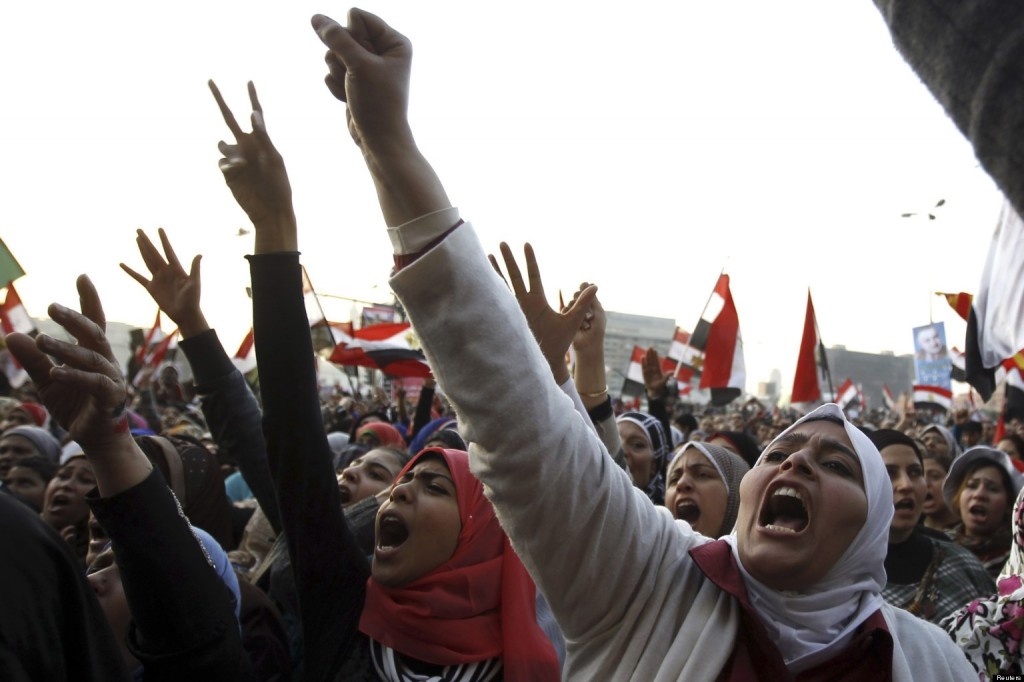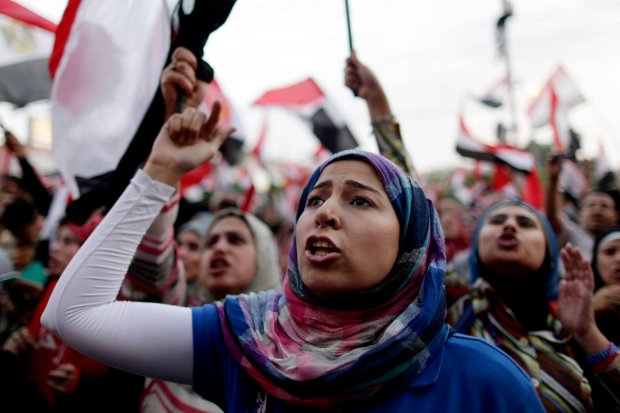Last September, Egypt was named the worst country out of 22 Arab countries in which to be a woman. During the Arab Spring and subsequently, many women were sexually assaulted or raped. However, some Egyptian women have claimed that this statement is unfair to women in Syria, whose sexual assault is an extension of the conflict that grips the country. It was also suggested that the finding overlooks women in Saudi Arabia that cannot leave their house without male permission. What is difficult is determining the grounds on which you determine the ‘worst’.
Mariam Kirollos, co-founder of Operation Anti-Sexual Harassment/Assault, stated the following to The Huffington Post:
“You can’t compare rape in a public square to women being banned from driving a car.”
Isn’t it heartbreaking when a crucial discussion focuses on which is worse: not going anywhere without consent from a male relative or being raped amidst thousands of people?
As a journalist I’m always searching for objectivity. About half a year ago I started to do research on women in Islam and the Arab world. As a Western feminist and atheist, but chiefly an idealist, I was looking for truth in places where even the word ‘truth’ has different meanings. As a white female who grew up in the Netherlands, I could not say that I understand what it is like to be a woman in the Middle East. That does not mean I will keep silent about it their suffering. Egyptian women’s advancement does not depend on contributions such as mine, since that would be denigrating towards the strength I believe so many Arab women have. This is simply a show of support.

Sexual terrorism silences women
When the Human Rights Watch identifies an ‘epidemic of sexual violence’, it is clear that these attacks go beyond discrete instances of assault. It is about a systemic social problem that implies a large-scale abandonment of adherence to what is right. So that I make myself entirely clear, when a group of men violently attack and rape a woman, that is fundamentally wrong. There is neither credible institution nor doctrine that sanctions such vile and predacious behaviour. What sickens me the most is a common response that the victim is responsible for an attack. Under no circumstances is it acceptable that a woman, victim to an attack, be held responsible for that assault.
Women need to take care of themselves. Unfortunately, that may entail avoiding democratic participation in demonstrations such as those in Tahrir Square. In July 2013, dozens of women were sexually assaulted at Tahrir Square during protesters against deposed President Mohammed Morsi. Similar incidents were witnessed during the January 25 revolution in 2011.
It is unacceptable that a woman should be forced to make the choice between expressing her views in a rally and her personal security. It is a fundamental precept of democracy that no such compromise need be made.

Digging up roots
The question is: how can we empower women when authorities act as if the woman is complicit in her attack? Last week a new anti-sexual-harassment-law was approved by the Cabinet, but the protection it affords is made almost unattainable, since a woman must provide two eyewitnesses to support her claim. A lot of the victims tell stories in the media about how witnesses look away or avoid the incident altogether. To add insult to injury, in some cases the victim must bring their harasser to the police station themselves.
That is the exact problem of the matter. Though this law is a first step in creating a society where a woman has security of person, it is not enough. There is a culture and mentality in Egypt that needs to be changed. I think women should be the ones to dig up those roots and hold them in the sunlight until everyone sees how rotten they are.
Many women – though there are many local initiatives to change this – do not speak up about their experiences. I do not wish to limit their right to privacy, but I worry about those women the way I think they no doubt worry about their daughters. Would you want your daughter to grow up looking over her shoulder because she has always felt unsafe or victimised by men and that the system of law that should protect her fails miserably? Silence will slow progress.
A process instead of a revolution
This is not something that changes overnight with revolution. It is a gradual process. As a woman, start to be the protector of your own integrity. Start with the way you look at sexual violence. Instead of gossiping about what the woman next door was wearing last time she was abused on the streets, publicly criticise the perpetrator’s crime.
If you want to teach your future daughter self-love and self-respect, start with yourself and the women around you. Unite and speak up for your rights.







Comments (5)
Dr Mustapha Tahir: Men should not let only women fight against rapists, all decent men should join the campaign against this evil doers. @MustaphaTahir
Both women and men, all round the world should stand up against rapists. Rape is bad & we must all speak loudly against it.@MustaphaTahir